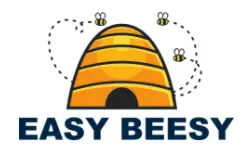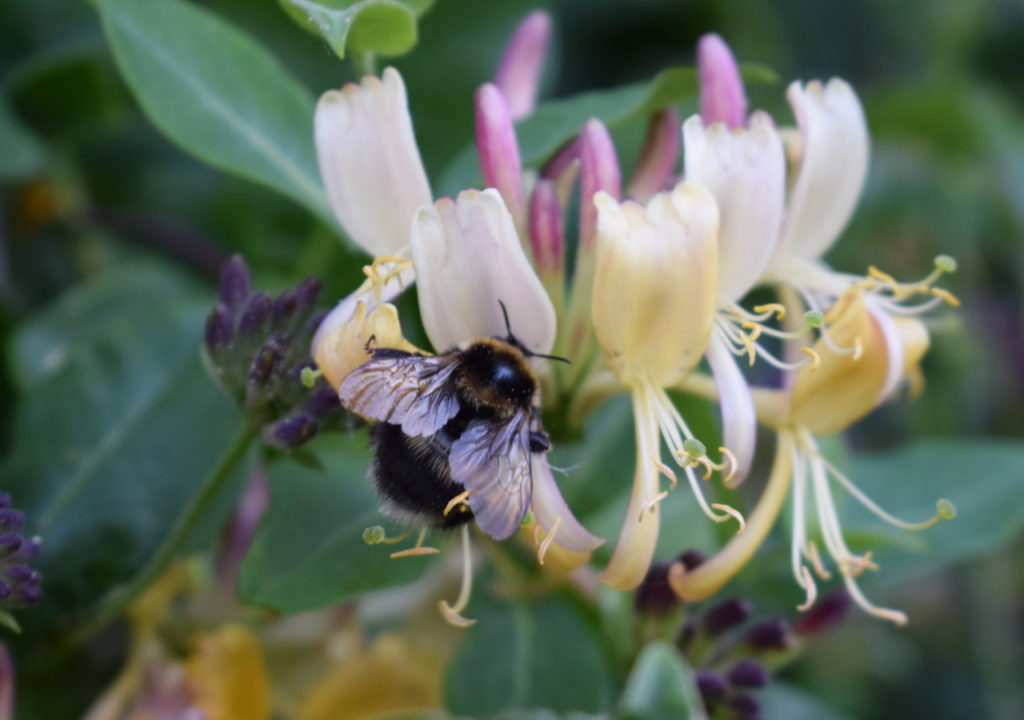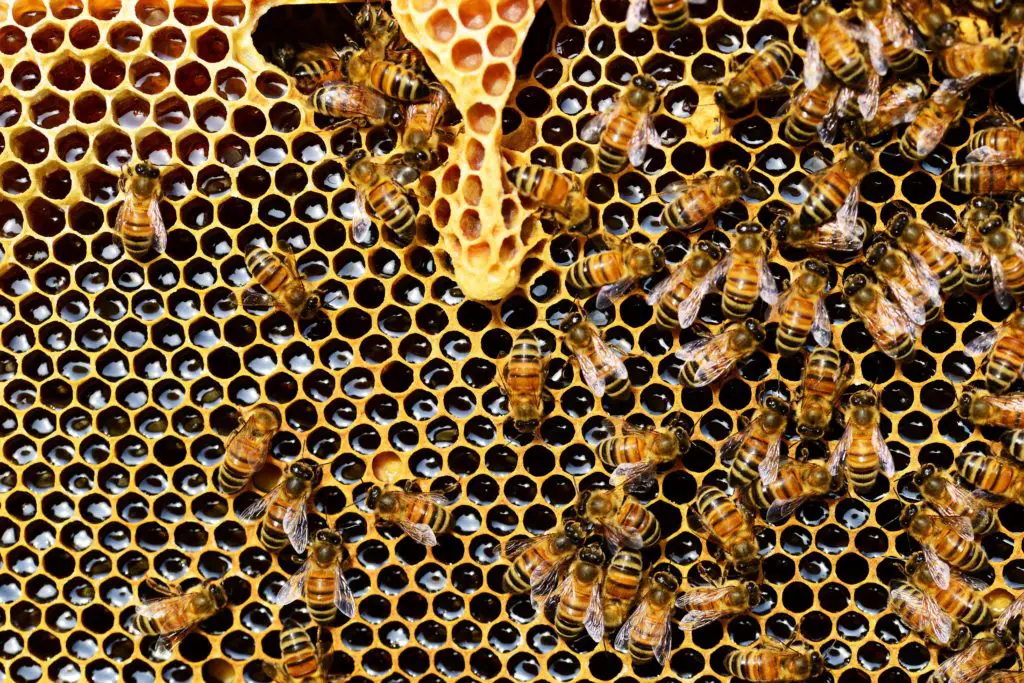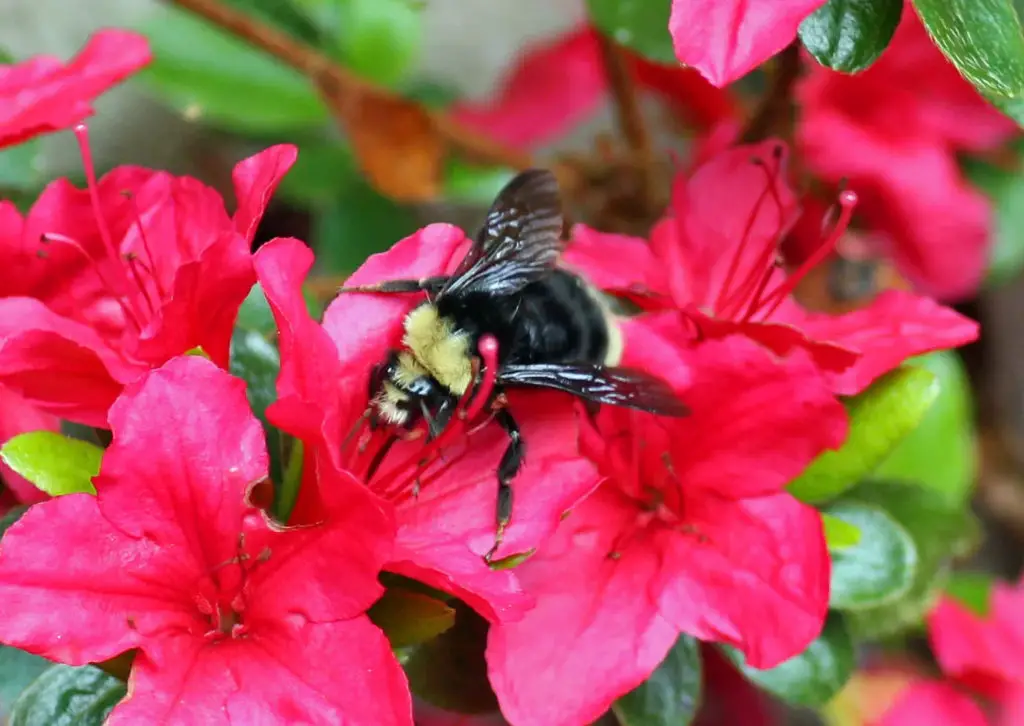Affiliate Disclaimer - As an Amazon Associate I earn from qualifying purchases.
It supports the website. So, Thank you
We all know the importance of using native plants to attract bees to our gardens. Moreover, if you’re a beekeeper and want to make sure that your hive has only the very best local plants then it’s super important to choose carefully.
There are a plethora of flowers favored by those looking to attract bees but there are also some that should be avoided. With a name like honeysuckle it would seem only fitting that a bee would love it; but do bees work honeysuckle?
Yes! Bees love honeysuckle. In fact, it’s one of the most commonly recommended plants to attract bees. These plants provide an excellent food source for the bees and should be a consideration for anyone who is looking to attract bees.
However, you should keep in mind that there are different species of honeysuckle and each one will have varying levels of nectar. In this guide, we’ll tell you everything you need to know to choose the right type of honeysuckle and why it’s so darn good for those bees!
Table of Contents
What Is Honeysuckle?
Honeysuckle comes from the plant family known as Lonicera and this is a plant that is found natively all over the Northern Hemisphere. What’s interesting is that a lot of people think that the name refers only to the beautifully sweet-scented flowers but the word honeysuckle also applies to the edible berries produced by this plant.
Across the continents of Europe, North America, and Asia, it is thought that there are more than one hundred species of honeysuckle; you’ve certainly got a good choice!
The leaves of the honeysuckle plant are oval in shape and around five centimeters long. The plant produces stunning bell-shaped flowers with five petals that can come in either yellow, red, pink, or white. The flowers bloom in pairs opposite the leaves and the plant also produces red or black berries which contain seeds.
As far back as history shows us, honeysuckle has been used as a food source for both humans and animals. In ancient Rome and Greece, the berries were commonly eaten and today, they’re still a popular snack in some parts of Asia.
But it’s really the flowers that set honeysuckle apart from other plants. They’re incredibly fragrant and fill your garden with their beautiful scent. More importantly, the flowers are bursting with super-sweet nectar which is what makes them so attractive to bees and other pollinators.
One of the great things about honeysuckle is that it isn’t too fussy about where you grow it. While there are optimal conditions, you’ll find that this is a pretty versatile plant that will do well in various soil types and climates.
Why Is Honeysuckle Good For Bees?
If you look at any of the many plants to attract bees lists on the internet, you’ll find that honeysuckle is featured on almost all of them. It really is one of the best plants for bees because of that sweet nectar we mentioned earlier on.
Bees are pollinators. This means that they collect pollen from one plant on their bodies. When they move to another plant, this pollen is transferred allowing for the reproduction of that plant. This is why bees are considered one of the most important insects on the planet.
Honeysuckle is an amazing nectar source for your bees. This nectar ensures that the bees are well fed, full of energy, and strong enough to produce honey. But what’s even more impressive is that the nectar from honeysuckle is packed with antioxidants which ensures your bees remain healthy and can resist things like chemicals and pollutants. All in all, bees that feed on honeysuckle will be more productive and healthy.
Types Of Honeysuckle
The great thing about honeysuckle is that there are so many different types. Of course, not all are going to be as good for bees so it’s important to consider your options carefully before choosing which variety you’ll plant in your garden. With more than 200 species, it would be impossible for us to list all of them here but here are three of the most popular types of honeysuckle for bees:
Japanese Honeysuckle
The Japanese honeysuckle is incredibly attractive to bees but is also a great choice if you’re looking to bring butterflies to your garden. These plants have white flowers that are highly fragrant and can grow between ten and twenty feet long.
Trumpet Honeysuckle
The trumpet honeysuckle is an incredibly popular choice for home gardeners and has beautiful tubular flowers in a red hue. These plants can grow up to ten feet in height but some are as small as half of this size. As well as bees, you’ll find that the trumpet honeysuckle also attracts pollinators like the hummingbird.
Fragrant Honeysuckle
As its name may suggest, the fragrant honeysuckle boasts a delightfully sweet scent that is not only attractive to bees but will be a talking point in your garden. These are a smaller variety of this plant which only grows up to five feet although it’s more common for them to grow to just two feet. If you’re limited on space, they’re an excellent choice.
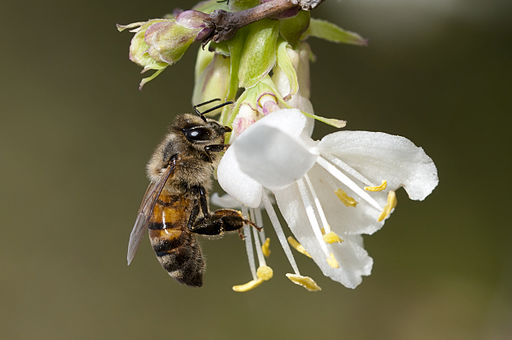
Buy Honeysuckle Plants And Seeds:
How To Get The Most Out Of Your Honeysuckle
If you want to attract as many bees as possible then it’s essential that your plants are thriving. The best way to ensure this is by taking good care of your honeysuckle. This is by no means a definitive guide on honeysuckle care but we have provided you with some handy tips on looking after this plant.
- Plant your honeysuckle in late spring after the last frost has passed.
- The more sun your honeysuckle is exposed to, the more blooms it will produce. That said, it will do reasonably well in a partly shaded area.
- Plants should be given at least three to five feet of space and planted in well-draining soil.
- Mulch the soil with bark to retain moisture and prevent weeds.
- Water your honeysuckle well.
- Prune your honeysuckle plants once a season to encourage better growth and bigger, more beautiful blooms.
Conclusion
Bees need flowers to survive. Without them, they would not get nectar which is an important food source and they wouldn’t be able to aid in pollination. There are so many flowers out there that are ideal to plant for bees and honeysuckle is an excellent choice.
These plants have high levels of super-sweet nectar that bees love. What’s more, the nectar is bursting with antioxidants for healthier, more productive bees.
